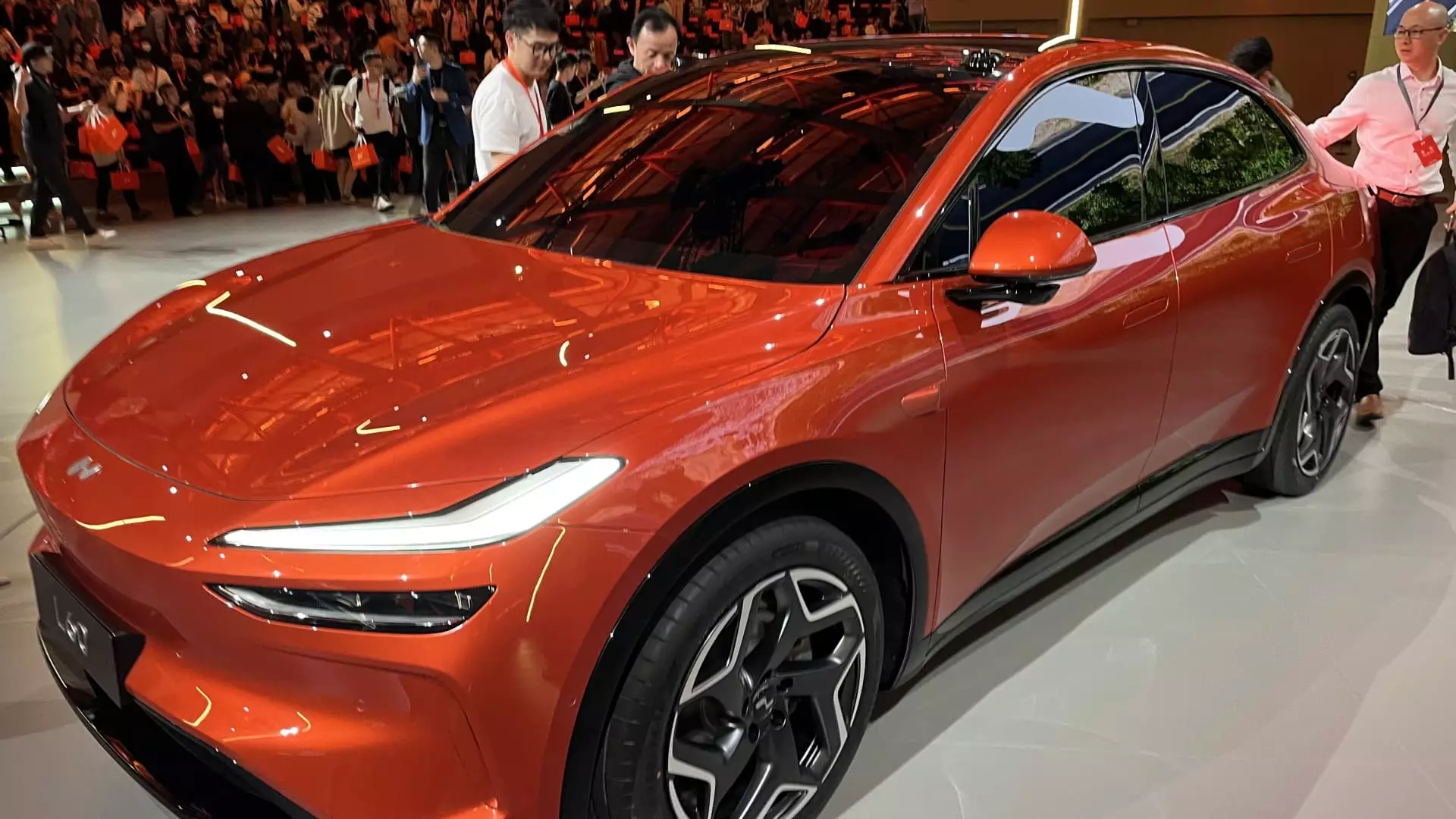The electric vehicle (EV) realm continues to evolve, with new participants striving to reshape the competitive landscape. Onvo, a burgeoning brand by premium EV manufacturer Nio, has launched its L60 SUV, positioning itself as a budget-friendly alternative to established players like Tesla. The introduction of this vehicle signals a pivotal moment in the Chinese automotive industry and has the potential to disrupt pricing strategies on a global scale.
Affordable Innovations in the EV Space
Onvo’s L60 SUV kicks off at a remarkably low price of 149,900 Chinese yuan (approximately $21,210). This price is achievable through a battery service subscription that starts at 599 yuan per month, reducing the upfront costs for potential buyers. This strategy allows customers to “rent” the vehicle’s battery, creating a more accessible entry point into the electric car market, especially for consumers wary of high consequence upfront investments. Traditional purchases, where the car and battery are bundled together, begin at 206,900 yuan.
The L60 SUV’s launch reflects Onvo’s strategy to capture a significant share of the middle-income demographic, particularly as it stands against the backdrop of Tesla’s Model Y, which starts at 249,900 yuan in China. This competitive pricing approach is essential to gain traction in a market where consumers are increasingly leaning towards cost-effective and practical EV options.
Onvo isn’t isolated in its mission; other Chinese brands are ambitiously entering the market. Geely-backed Zeekr, for example, is preparing to release the Zeekr 7X midsize electric SUV at a base price of 239,900 yuan, further increasing competition. Meanwhile, Xpeng has introduced its Mona brand, intending to offer the M03 electric coupe starting from an even lower price point of 119,800 yuan. This trend highlights a broader movement among Chinese manufacturers to dominate the EV segment with aggressive pricing and innovative financing options.
While the price advantage could provide a competitive edge, it remains to be seen whether such pricing strategies can retain profit margins, especially as global players like Tesla also engage in periodic price adjustments to maintain their positions amidst increasing competition. As these brands surge into the EV market space, they may further reshape consumer expectations regarding price, performance, and value.
Despite the optimism surrounding Onvo’s entry, there’s a cloud of uncertainty looming over the expansion plans into international markets, particularly in Europe. The European Union’s impending tariff increases threaten to complicate profitability for Chinese EV exports. Nio has voluntarily engaged in the EU’s ongoing investigations into the use of government subsidies by Chinese manufacturers, resulting in potential tariffs that could affect Nio and Onvo’s competitive viability in Europe.
The tariffs, averaging around 20.8% for Nio and varying for other competitors such as BYD and Geely, impose a significant financial burden that may restrict growth ambitions. Recognizing this, Nio’s CEO William Li has indicated a strategic pivot focusing on five key European markets where Nio already has a foothold, while also addressing the longer timeline required for establishing a premium brand identity in Europe.
Ambitious Growth Goals and Future Prospects
Looking forward, Onvo is setting ambitious goals within the Chinese market, targeting 10,000 monthly L60 deliveries by December, with an aim for 20,000 deliveries per month in the following year. This level of ambition is indicative not only of Onvo’s confidence in the product but also a calculated risk in navigating potential supply chain constraints and market adoption challenges inherent to new automotive entrants.
Li has also mentioned plans to extend Onvo’s reach through an additional budget-friendly brand titled Firefly, which is expected to roll out its first vehicles next year. This multi-brand strategy, accompanied by aggressive establishment of operational nodes across China, aims to create a robust sales network, aligning with broader trends in consumer preferences for affordable and practical mobility solutions.
As the EV landscape transforms, Onvo’s approach to affordability, international expansions, and concurrent brand development signifies not just an opportunity for consumer choice but a signal that the competition for market dominance will remain intense in the coming years. If Onvo can successfully navigate these challenges, it could set a precedent for future players in the EV sector.

Leave a Reply